#2) Globalization Immigration policies regarding asylum and
advertisement
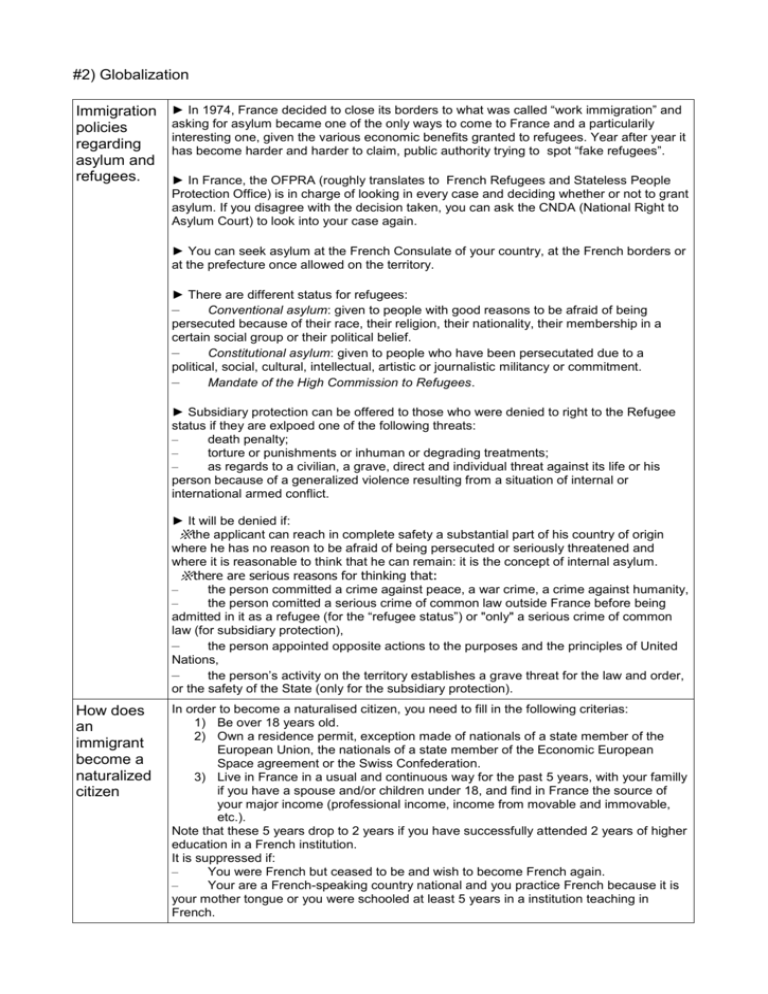
#2) Globalization Immigration policies regarding asylum and refugees. ► In 1974, France decided to close its borders to what was called “work immigration” and asking for asylum became one of the only ways to come to France and a particularily interesting one, given the various economic benefits granted to refugees. Year after year it has become harder and harder to claim, public authority trying to spot “fake refugees”. ► In France, the OFPRA (roughly translates to French Refugees and Stateless People Protection Office) is in charge of looking in every case and deciding whether or not to grant asylum. If you disagree with the decision taken, you can ask the CNDA (National Right to Asylum Court) to look into your case again. ► You can seek asylum at the French Consulate of your country, at the French borders or at the prefecture once allowed on the territory. ► There are different status for refugees: – Conventional asylum: given to people with good reasons to be afraid of being persecuted because of their race, their religion, their nationality, their membership in a certain social group or their political belief. – Constitutional asylum: given to people who have been persecutated due to a political, social, cultural, intellectual, artistic or journalistic militancy or commitment. – Mandate of the High Commission to Refugees. ► Subsidiary protection can be offered to those who were denied to right to the Refugee status if they are exlpoed one of the following threats: – death penalty; – torture or punishments or inhuman or degrading treatments; – as regards to a civilian, a grave, direct and individual threat against its life or his person because of a generalized violence resulting from a situation of internal or international armed conflict. ► It will be denied if: ※the applicant can reach in complete safety a substantial part of his country of origin where he has no reason to be afraid of being persecuted or seriously threatened and where it is reasonable to think that he can remain: it is the concept of internal asylum. ※ there are serious reasons for thinking that: – the person committed a crime against peace, a war crime, a crime against humanity, – the person comitted a serious crime of common law outside France before being admitted in it as a refugee (for the “refugee status”) or "only" a serious crime of common law (for subsidiary protection), – the person appointed opposite actions to the purposes and the principles of United Nations, – the person’s activity on the territory establishes a grave threat for the law and order, or the safety of the State (only for the subsidiary protection). How does an immigrant become a naturalized citizen In order to become a naturalised citizen, you need to fill in the following criterias: 1) Be over 18 years old. 2) Own a residence permit, exception made of nationals of a state member of the European Union, the nationals of a state member of the Economic European Space agreement or the Swiss Confederation. 3) Live in France in a usual and continuous way for the past 5 years, with your familly if you have a spouse and/or children under 18, and find in France the source of your major income (professional income, income from movable and immovable, etc.). Note that these 5 years drop to 2 years if you have successfully attended 2 years of higher education in a French institution. It is suppressed if: – You were French but ceased to be and wish to become French again. – Your are a French-speaking country national and you practice French because it is your mother tongue or you were schooled at least 5 years in a institution teaching in French. – You are a refugee. 4) You have to be assimilated to the French society, notably through a sufficient knowledge of French language, French history, French culture of and French society and as the rights and duties conferred by the French nationality, as well as through your adhesion to the core principles and values of the Republique. After your assimilation cotrol, you will sign the rights and duties of French citizens chart. This chart reminds the essential principles, values and symbols of the French Republique. 5) Be of good behavior and moral character and have a loyal behavior regarding French institutions. Our stance on the United Nations and their policies France takes part in both military and diplomatic actions put in place by the United Nations. She sends a lot of troups around the world when needed (ex: Mali, Syria, Libya) but France is a small country and doesn't have enough ressources to deploy huge amounts of men over a long period of time. International policies pursued by France Active military presence abroad: ► In Niger: the Nigerian government has accepted the presence of a temporary military base in order to fight against the renewed outbreak of jihadist actions. ► In the Persian Gulf: the French aircraft carrier was deployed in order to allow more aircrafts to takeoff and bomb jihadist positions, if needed. ► In Mali (via the European Union): Troups have been deployed in order to fight against terrorism in Mali. International (unalienable) rights ► France fights against enforced dispearance, torture and arbitrary detention: She ratified the United Nations Convention against Torture in 1994 and the International Convention for the Protection of All Persons from Enforced Disappearance in 2008. ► For the right to drinking water and purification: She supported the adoption in 2010 of the resolution of the Assembly of United Nations proclaiming for the first time in this surrounding the right to drinking water and to purification. She established in 2011 the "Blue Group " whos aim is to promote this right on the international scene. France represents the third bilateral lessor for water (600 million euros in 2012). ► For children’s rights: France subscribed to each and every international text protecting and promoting children rights. France supports the action of the UNICEF, to which it offered a total of 3,4 million euros in 2014. ► For women’s rights: France actively participated in the elaboration of the Convention of the Council of Europe Convention Convention on preventing and combating violence against women and domestic violence. It is about the first legally binding international text on the subject. ► For freedom of religion and conviction, of opinion and expression (including freedom of the press and protection of journalists) ► Against anti-Semitism, racism and discriminations: France has gradually set up a penal system and an educational, cultural and sports policy which approaches all the aspects of the fight against racism and anti-Semitism and concretely promotes equality of opportunity. ► For LGBT rights: France created in 2009 with the Netherlands and Norway a Fund of international support "Human Rights, sexual orientation and identity of genre". The Fubds are re-distributed to local associations that fight for LGTB rights. ► Against death penalty: France mobilized its diplomacy all around the world in a campaign for the abolition of death penalty. ► France is commited to the memory of Shoah: François Holland emphasized the importance of remembering: While the direct witnesses of the Holocaust have for very already disappeared, France considers as its highest responsibility for immortalizing the memory.” ► Above all, France fights for Human Rights
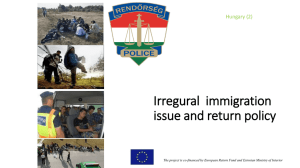

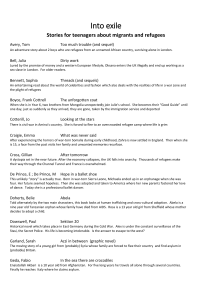

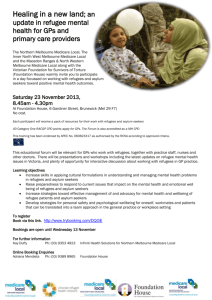
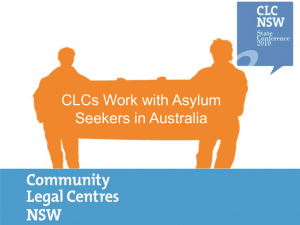
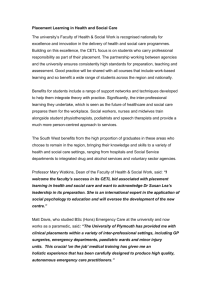
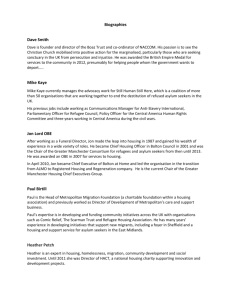
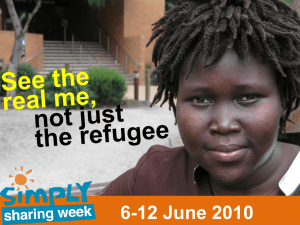
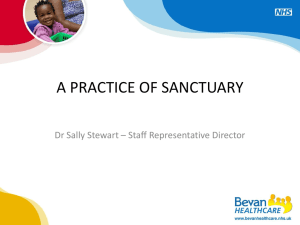
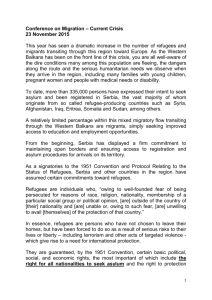
![ivys' cat refugees[1]](http://s3.studylib.net/store/data/025214061_1-e8d52451e6b98c3570e6d34e07296fa5-300x300.png)